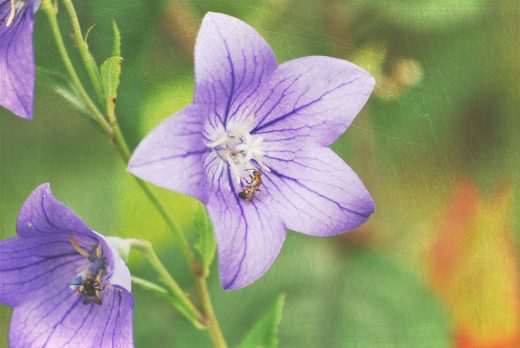This week I came across two different articles – one in my local newspaper and the other in magazine – that focus on the problems that are facing our bees. Hives are dying off and the bees are disappearing and this has many people VERY concerned. Why? Well, ecosystems in general are a complex series of interconnected life forms that depend upon each other. It very much is a circle of life and when part of the circle breaks… this means trouble for all other parts of it. Ecosystems exist in a state of balance and when one component is affected, the whole system is thrown off.
Bees are an integral part of a healthy ecosystem. They aren’t just helpful to have around… we NEED bees! No bees means no pollination, which means the disappearance of certain plant species, which in turn means the disappearance of certain animal species. I read somewhere that a 1/3 of US crops are pollinated by bees so even mighty humans will be heavily impacted if bees disappear.
Here are some things to think about the next time you get annoyed by a bee.
1. Pollination
Bees’ pollination efforts are responsible for a wide diversity of wild flowers and many crops depend on them. In fact, without bees’ pollination of flowering crops and flowers, there would be far less food in general and diversity in particular. In fact, if bees did not pollinate in the wild, some vegetation would become extinct, leaving space for invasive, problematic species to take over. Animals that eat the extinct vegetation would then die off, followed by the carnivorous animals that eat the herbivores. As noted above, it’s all connected. You cannot take one link out of the chain and expect it to function.
Human food is dependent on bees too. Apples, pears, cucumbers, cherries and other flowering/fruiting crops depend on bees to fertilize the flowers so that fruit will develop. When a bee gets nectar from a flower, it gets coated in pollen. The bee then carries this pollen to another flower, fertilizing it and causing the flower to develop into a fruit. Without pollination, many flowering crops would not yield fruit, or would yield very little.
2. Bee products
Human health is greatly enhanced by the inclusion of bee products. Here are some important items that bees provide that can benefit humans.
* Honey – Honey is not just another sweetener. Raw, unfiltered honey that has had minimal processing from hive to jar has many healthful benefits. It contains all sorts of vitamins, including phosphorous, iron, vitamins A, B-complex, C, D, E and K. According to herbalist Stephen Buhner, honey has at least 75 different compounds.
A spoonful of raw honey makes an excellent cough syrup, and it can serve as a base for home-made medicinal syrups. Raw honey is a remarkable dressing for severe burns, and the antibiotic properties of honey have excelled conventional antibiotics in the treatment of ulcers and surgical infections. Honey has even been touted as an excellent treatment for allergies.
* Beeswax – This natural, beautiful product has been used to make candles, lip balm, cosmetics, crayons, moisturizers, and other items.
Many vegans argue that we should not utilize bee products and to some extent they are right on. I would, however, say that we need to support bee keepers who take care of their hives well and who extract honey sustainably. If there is no support for them, then people will get honey from major agribusiness who will be far less ethical in their handling. Patronizing ethical beekeepers gives them a reason to keep up the good work they do. Without changing the external factors that are harming our bees they will still be in danger of disappearing so we need to keep the good guy on the case.
The bee is an important component of the ecosystem, and we humans, as part of the ecosystem, benefit greatly from what bees do. It would be wise for us to talk to local beekeepers, find out what we can do, patronize those are helping repopulate bee populations, to stop using chemicals in our yards that can harm the bees, and to contact bee removal experts if we feel a hive is too dangerous to remain on our property. We all need to think a little bit more about those little guys and what we can do or stop doing to make sure they stick around.
What do you think? How can we bee more proactive about protecting bees?


